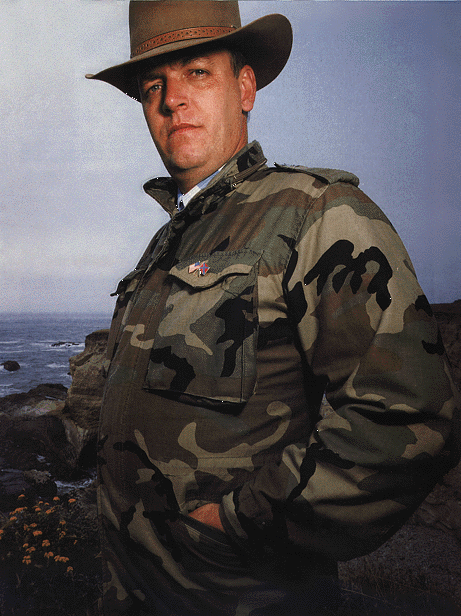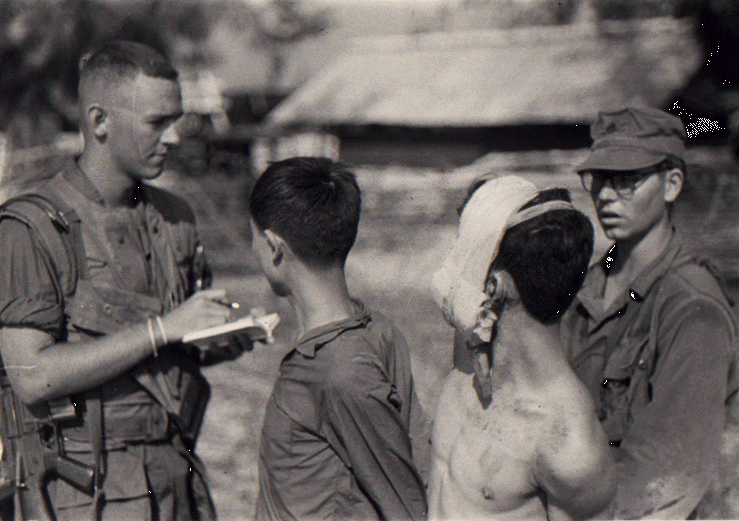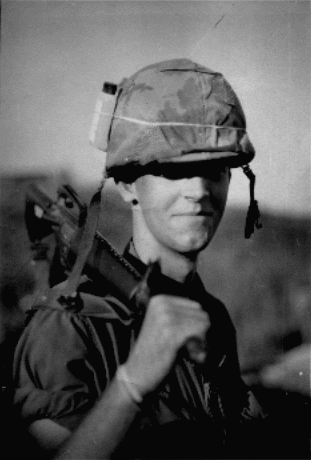From the vaults here’s Pat Jordan’s profile of Steve and Cyndy Garvey. The piece caused a stir when it was published and the Garveys filed a suit against Newsweek, Inside Sports and Pat Jordan. The case never made it to trial and was eventually settled out-of-court. Soon after, Steve and yindy Garvey separated.
The following is Jordan’s original manuscript–featured in “The Best Sports Writing of Pat Jordan.” I’ve reprinted it here, with permission from the author, as an example of the kind of lengthy magazine writing that was fashionable at the time.
“Trouble in Paradise” is far from Jordan’s best work, but it captured a time and a place well and offered a candid look at the difficulties of celebrity marriage.
Enjoy.

Trouble in Paradise
This is a story about Southern California, and baseball, and sex, and fame, and wealth, and beauty, and the American Dream. It is a story about a famous athlete and his beautiful wife and the life they live in that rarefied atmosphere that few of us will ever breathe. And yet, despite its uncommon trappings, it is not an uncommon story. It is simply a love story about men and women who marry when young, when they are merely tintypes of one another and their lives together are spread out before them like some preordained feast. It is a story about husbands who go off to work, and wives who become mothers, and the ordinary lives they slip into along the way—lives that are satisfyingly simple when they are young. It is a story about people who change over the years, who grow older in different ways, who become different people from who they once were, and how this is really no one’s fault. Finally, this is a story about people who have slept together in a familiar bed for so many years that it is a profound shock to them when they wake one morning to discover they are sleeping in a strange bed alongside of someone they no longer recognize.

THE HOUSE
The house is decorated in a style common to people who have the resources for instant gratification, but who have yet to grow into a style of their own. The young wife did not have the style, or the patience, to coordinate every detail (the plaid wallpaper with the print sofa), which might have taken years, and so she merely hired the right decorator to whom she could entrust the ten-room house while she and her husband were away. When they returned, the empty house had been filled with things. There was a color television set in every room, and two in the family room. There were eleven LeRoy Neiman prints on the wall of the library. There was a pool table in the den, a few balls scattered across the felt as if to imply a game in progress. There were plants everywhere: hanging-plants in hand-painted pots, floor-plants in wicker baskets, wall plants in elephant horns, plants with spidery tendrils, plants with cactus-like trunks, and plants with rubbery-looking leaves as large as the blade of a shovel. There were three bars done in a Mediterranean style, but no liquor bottles, since neither the wife nor the husband drinks. There were four bathrooms done in Italian marble, with gold-plated fixtures, and a toilet, which, when flushed, spewed forth royal blue Sani-Flush. There was an art book or a high-end magazine in every bathroom, and on every coffee table and end table in the house (Architectural Digest, Paintings by Norman Rockwell, Paintings by Vincent van Gogh, Celebrity Houses), and there were three such books on the massive glass-and-chrome coffee table in the living room, each book arranged casually atop the other, just a bit off-center. There were oriental rugs, too, and inlaid tiles, and matching white linen sofas, and a brick fireplace with a large gold fan in front of it. The fan was so large, in fact, that it obscured the fireplace it was meant to adorn. There was a cut glass sherry decanter ringed by tulip-shaped, long-stemmed glasses on a silver tray on the bar in the library. The decanter was a third filled with an amber liquid, and it was arranged on the bar in such a way that, on sunny days, the light through the window would reflect off the cut-glass in a rainbow of colors. Soft music floated through the house from unseen speakers.

The children’s bedroom overflowed with stuffed animals of every pastel hue. Pinks and yellows and baby blues littered the beds, spilled onto the floor, rose, in a miasma of color, to the ceiling. The master bedroom was done entirely in white. There was a telephone in each of the dressing rooms off the master bath. There was a sauna. There were photographs in the bedroom hallway. Photographs of husband and wife and children. Photographs of the husband and wife. Photographs of the children, two young girls with windblown hair—one blonde, one dark. Photographs of the blonde daughter, laughing, with an upraised can of soda. There were more photographs downstairs: The husband in a baseball uniform, holding two small American flags in each hand and smiling at the camera. The wife in profile, her blonde hair as unreal in its perfection as that of a Breck girl. The wife getting out of a car. Posed getting out of a car, the car door opened, the wife smiling as she points one leg out of the car, her silky dress hiked past her thigh. The husband in uniform again, the wife beside him, holding a baby in her arms, the microphone, home plate, and, unseen, thousands of adoring fans. There were dozens of such photographs, and more. Photographs of the husband swinging a bat, throwing a ball, sliding into home plate, posing with other baseball stars, posing with actors, actresses, politicians, and presidents. All the photographs were the same. Stylized. Posed. Perfect exposures without a blemish. They were the photographs of an unseen portrait photographer, who had spent weeks following the family, taking snaps, developing them at his studio, discarding hundreds of possibilities before, finally, selecting those snaps from which he would let the wife choose.
There were mementoes, too. In glass cases. World Series rings. Golden Gloves. Bronzed spikes. Metal sculptures. Framed magazine covers. Civic awards from the Israeli government. From the Junior Chamber of Commerce. From charities. The husband contributed his time and energy to this charity and that. The husband was one of the ten outstanding young men in America in 1977. The husband was a Guardian of Freedom.
All the mementoes were the same. Recent. Expensive-looking. Freshly-minted reminders of the husband’s past, as if, for this family, there was no past worth recalling other than the husband’s, and no past more distant than that of a few years ago.
Everything in this house looked the same. Unblemished. Freshly minted. Disposable. Objects with no real past. Objects that could be replaced instantly with enough money. There were no rotting, gray, baby shoes of a revered grandmother. There were no brown-tinted photographs of some stern great uncle in a high-button collar, his slicked down hair parted in the middle. There were no off-focus photographs, poorly but lovingly taken by a young husband with his first Polaroid camera. There was none of that faintly shabby, comfortably worn feel of a house filled up in stages over the years as the family prospered and grew. This was a house in which most of its objects seemed to have been purchased at once, and, if they are replaced, it was not because they had been broken, but because someone had had a whim, to change a mood, to redecorate. This house was stuffed with such things. There was no unused space. It was as if, for this family, all these expensive-looking objects were needed to fill in the gaps in their unformed natures. Outside, the house and its surroundings are typical of a certain kind of affluent Southern California architecture and landscaping. Stucco walls. Orange Mission tile roof. Greenhouse plants and flowers. Grass the color of forest green and laid down in sod strips that could be rolled up like a carpet and replaced when the strips died in the Southern California heat. There is the obligatory swimming pool, reached through sliding glass doors in the den. There are floodlights aimed at the house. And a sprinkler system. The sprinklers are aimed at the house, too, not at the grass, because this is the San Fernando Valley, the land of brush fires, a land without trees, with only tall, dried grasses that flame up in the summer, a land once so uninhabitable that only coyotes and rabbits and rattlesnakes thrived.
The house sits at the end of a dead-end street on a bluff overlooking the valley and the community of Calabasas Park. Below in the valley lies a spotless, geometrically laid-out community of similar houses, of streets with vaguely European names (Park Capri, Park Siena, Park Vicente), of schools and shopping centers and country clubs and a man-made lake. All of it looks as if it sprang up, full-blown, only yesterday, without the benefit of a past, a real past, a past more distant than a few years ago. It is not the kind of community in which people go from birth to death without leaving. People move into Calabasas when they become suddenly affluent, and then, after a few years and an amicable divorce, they move back to Los Angeles, thirty miles to the south.

THE WIFE
The Wife is thirty-years-old. She is tall and thin. She has long blonde hair. She is pretty. Conventionally pretty. Pretty in the manner of a Miss America contestant. Undistinguished. Lacquered. She embellishes that look to give it distinction—bleached hair, heavy make-up—but her efforts only underline its lack of distinction. It is a look thought glamorous in certain regions of this country, and despite her protestations to the contrary (“I don’t try to look this way. I just always was glamorous.”), it is not a look acquired without effort. She claims her looks are a burden. “As a kid, they made me shy. People reacted to me in a negative way because of them. I always wanted my personality to overcome my looks, but it was difficult for people to get past them.” Her ambivalence is not uncommon among women who have been pretty all their lives. They have taken satisfaction from their looks for so long that, even when they wish to break the habit, it is not easy. “Men bother me on planes,” she says. “Businessmen. Sometimes, I leave first class and go back to coach to read in peace. Sometimes, though, if they’re only trying to be polite, if they say something like they like my profile, well, then I have to stay and talk to them.”
She was born in Detroit of Czechoslovakian ancestry. Her father was an Air Force colonel who dragged his family back and forth across the country. She attended more grammar schools than she can remember, and four high schools before she finally graduated from one in Washington State. She learned early how to forgo a social life in favor of academic achievement. She learned also, how to be alone. “I’m still not comfortable in group situations,” she says. She describes her parents as “harmonious opposites.” Her father was very strict with her, more strict than he was with her two brothers. “Still, I loved him,” she says. “But I identified with my mother. She kept the family together. She made a home wherever we were. And even though she taught me domestic skills, I’ve always felt she wanted me to be something. To achieve. She was not a career woman herself. She could have been, I think, if she hadn’t followed my father all over. When I was a little girl, I told my father I would never marry a man who was gone all the time.”

She met her husband at a dance at Michigan State, where she was a freshman, he a sophomore and a professional baseball player. Although he was then in the minor leagues, he was one of those golden youths for whom major league stardom had already been predicted. It was merely a matter of time.
“He was different from anyone I’d ever met,” she says. “He was a gentleman. He was not all over my body the minute I saw him. He seemed so stable. Maybe it was because of my childhood, but it was terrific to talk to someone who knew what he wanted to do. He’d already signed then. He was so directed, you know, to be a baseball star.”

They dated for two-and-one-half years, during which time he did become a major league star—he was the National League’s Most Valuable Player at the age of twenty-four—and their relationship reached a point where, as she puts it, “either we married or it died. I’d never thought of marrying a baseball player. I wasn’t even a fan, and then, suddenly, I was the wife of a major leaguer. The wife of a star.”
For the first time in her life, the wife, always a pretty woman, became visible in relation to someone else—her husband. It was exciting. She would walk down the ramp leading to her seat with the other wives at the stadium and fans would turn in admiration. Children, even grown men, begged her for her autograph. When her husband came to bat, he always paused a minute in the on-deck circle, and looked for her in the stands. The camera quickly panned to her (she was easy to spot, with her long blonde hair). She cheered her husband on. He hit a home run, or a double, or a single, and, in a way, she had shared in it.
“The high point of my day was going to the ballpark,” she says. “Soon my entire satisfaction was in my husband’s career, his day-to-day achievements. Some of the wives tear their hair out during the games. I watched one wife unravel the entire hem of her dress. Another tore her nails off. I wasn’t that bad. I wasn’t that team-oriented. Until my husband came to bat, I would read a book to pass the time. I made sure the book was in my lap so no one would notice.”
In her early twenties, she became used to living her life in the public eye, in that rarefied atmosphere of adulation and deference and instant gratification so familiar to famous athletes, politicians, actors, and rock stars, who, after awhile, see it all as their birthright. Her husband bought her a baby blue Cadillac with a vanity license plate—“Cyndy N6” (her name, his uniform number). Her husband took her with him when he was a guest on a television talk show. While she waited in the wings, he took his place beside Johnny or Dinah or Merv or Mike.
Wearing a three-piece-suit, his thumbs hooked into his vast pockets, looking for all the world like a young Southern entrepreneur, the husband could not contain himself. He waited for an opening, forced it even, and then began to tell Johnny or Dinah or Merv or Mike about his wife: how intelligent she was (3.8 grade average in sociology), how beautiful she was (a model), how talented (a dancer), what a great wife she was (she inspired him to hit home runs), what a great mother she was (for by then they had two daughters), and, finally, how much he loved her. The audience applauded. (At home, unseen, more than one ordinary housewife groaned at his effusiveness.) Then, the husband, hinting broadly, told his host that his wife was waiting for him off-stage. The host invariably took the bait. Well, let’s bring her out! She slipped through the curtain onto the stage. The audience applauded, again, applauded as resoundingly as if she had been a famous actress or singer, and not merely the wife of a baseball star. As she walked across the stage towards her husband, he beamed.
The husband took her with him everywhere, and always, it seemed, it was a public occasion recorded by the media. She went to banquets when he gave a speech or received yet another award. There were mostly men at these banquets, older men, baseball executives, Rotarians, and they were all charmed by the wife. “They always said the same thing,” says the wife. “‘Oh, isn’t she lovely!’ They said it to my husband. In front of me. ‘Lovely’ became my middle name.” She went with her husband to charity functions, too, and political fund raisers (for even then, the husband harbored distant political ambitions) in which she and her husband were as celebrated as the politicians seeking office. “When we walked in,” says the wife, “the crowd parted for us as if we were royalty.”
Their public perceived then as a handsome, loving couple. And nice. Nice in that bland, middle American conception of niceness (“If you can’t say something nice about someone, then it’s best not to say anything at all.”) It seemed almost irrelevant that, despite their image, they were nice, truly nice to those who got to know them. The media, in which, increasingly, they seemed to live their lives, began referring to them as baseball’s perfect couple. The blonde wife with the perfect smile (so what if, picture after picture, it was the same smile and her hair seemed a solid piece?). The handsome husband with the blow-dried hair (so what if he looked a bit too boyish and his hair was done at Jon Peters’ Salon in Beverly Hills).
They signed on with the William Morris Agency. Endorsements began to pour in: Pepsi (“As soon as I get to my seat at the stadium,” says the wife, “I order a Coke. . . . Oh, I mean Pepsi!”), Jack LaLanne (the husband and wife exercising, smiling, not a drop of sweat anywhere, and the wife, curiously, appearing taller than the husband), Mattel (the makers of, among other things, Ken and Barbie dolls. After they signed with Mattel, the media began to refer to the couple, not without a touch of sarcasm, as “the Ken and Barbie dolls of baseball.” The sarcasm escaped the wife, at first: “I was so flattered,” she says. “I only wish I had…” (modest pause) “…as much on top as she does.”)
Soon, their public image began to work against them. No one could be that perfect! No couple could be that much in love! No life was that simple! “But it was,” says the wife. “It was simple. We were just young and in love and we did a lot of charitable work.” Her husband began to have trouble with his teammates, who felt he was receiving a disproportionate share of publicity. Worse, they felt he courted it. (More than once, he was heard saying to a magazine writer, “Will this be a cover story?”) His image grated on them. They questioned its sincerity. How could someone, a baseball player, a star, on whose time the public had made unfair demands, be so nice to everyone? Before every home game, he went out of his way to say hello to two little old ladies in the stands. “They’ve come to every game,” he says, and then adds with all humility, “They just wouldn’t feel right unless I said, ‘Hello.’ It makes their day.”
There was a much publicized locker room fight with a teammate. Punches were thrown. They grappled on the floor. Their teammates had to pry them apart. Afterwards, there were televised apologies. The husband began to crack. In an emotional speech, he told the audience he was defending his wife’s honor. He refused to elaborate.

The bad feeling that some teammates harbored against the husband spilled over onto the wife. The other wives complained that she was too often with her husband, especially on those public occasions when the media was present. They told her she had never paid her dues in the minor leagues as they had, as if this was the wife’s fault. They complained that a woman’s magazine photo lay-out of the team wives carried a disproportionate number of photos of the wife. They threatened to withdraw their approval of the lay-out unless the imbalance was rectified. They complained, finally, that too often during a game the television camera panned the wives and focused on the wife.
“It wasn’t my fault,” says the wife. “It was just that my hair made it easy for the camera man to pick me out. And I didn’t tell the magazine to use more pictures of me than the others. It was their decision. A few of the wives—and I want to emphasize this point, I’ve only had trouble with a few of them—maybe were not as pretty as I am, and maybe they didn’t have a vehicle like I did—” meaning the husband—“I began to sit off by myself at games. Why not? I’d always felt their conversation was so trivial, anyway. I mean, those few I didn’t get along with. They spent hours talking about make-up. I would go wild. They said I was a snob for not sitting with them, so I went upstairs to the Stadium Club. I watched the game from behind a glass partition.
“I phased out of baseball three years ago. I don’t see the wives much anymore. I don’t have to ask them about their kids or their husbands or anything. I only went to eight games last year. It wasn’t any one big thing, it was just that a season came along and I said, that’s it. I don’t go to banquets anymore with my husband, either. I told him I couldn’t take it. I wanted to scream! All those men talking baseball. I was just a ‘lovely’, that’s all. I promised myself I wouldn’t do that anymore. My husband says I don’t want to participate in any part of his life now. He gets invitations that say, Oh, and your wife came come, too. She can sit on the dais with you. Of course, she isn’t gonna do shit, but so what? I wouldn’t go. There would always be this empty place beside my husband with my name tag, and my name spelled wrong. I hate that. But that’s the way it was…I don’t go with my husband to talk shows either. I’ll only go if I have a vehicle of my own. I can sing, you know. I can dance. I can talk. I can chew gum.”
The wife was twenty-nine-years-old. Life was no longer simple. She took a job.
THE JOB

The chef is smoking a long cigar while plucking the feathers from a dead chicken. The lady from Adopt-a-Dog is sitting on stool with two whimpering puppies and a towel on her lap. The male model is smoothing the sides of his hair with the flat of his palms. The housewife, who lost her husband to her best friend and wrote a book about it, is talking to an actress whose career was based on her talent for marrying a succession of men, each more wealthy than the last. The actress, a plump little blonde, is telling the housewife how she has managed to retain her taut facial skin without benefit of a facelift. She throws her hair forward, over her face, and points behind her ears. “You see, Dahlink,” she says. “Not
even a scar.”
Suddenly, there is a call for quiet on the set. The director, a slim black man with a gold earring in one pierced ear, begins counting down, out loud, from ten. “Nine…eight…seven…” Behind him, a New York commercial actress is telling a bearded man about her network coffee commercial.
“You see this,” she says, pointing to her face.” This is the face that launched a thousand coffee cups.”
The director whirls around on his heels, plants his hands on his hips, and snaps, “Quiet, LOVE! If you please!” He returns to his counting. The battery of cameras begins to move forward, towards the talk show host, a dapper man in a pinstriped suit, who is sitting on a large sofa. Sitting beside him is the wife, the show’s co-host. The director points at the host and nods with great exaggeration. The host begins his monologue. The wife smiles at the camera. She is sitting up very straight, legs crossed, hands folded in her lap, leaning slightly towards the host. Every so often she interjects a comment. The host responds without looking at her. She smiles at the camera. The host goes on. From the shadows, the New York actress whispers to the bearded man. “It’s a regional look,” she says of the wife. “It would never play in New York.”

The wife is wearing a teal blue, Qiana, pajama suit with white high heeled shoes. The suit is belted at the waist with a large, cloth flower. There is a string of pearls around her long, tanned neck. Her blonde hair is pulled back into a pony tail revealing a pair of oversized bulb earrings. Her hair is pulled back so tightly from the sides of her face, stretching the skin, that her face looks gaunt. She is too thin. Her thin arms appear as sticks protruding from her sleeveless blouse. On the television screen she appears only as slim, but in person she looks emaciated. There are deep lines, parentheses, on either side of her wide mouth, as if from too much smiling, or too severe a diet, or maybe just from an inner tension that is finally beginning to show in her face.
The host is telling a funny story directly into the camera. The wife adds a word here and there, no more than a phrase. She punctuates her words with a taut smile, a laugh, a flutter of eyelids, a gesture of her hands, all of which seem a bit out-of-sync with her words. She smiles too broadly, too often, too late. The host finishes his story and she laughs, laying a hand on his arm and leaning against his shoulder. The host begins another story. The wife listens, smiles. She initiates nothing, ventures little, seems content only to react to his lead, as if all her life she has been only an appendage of men.
As the host is finishing his monologue, the wife interrupts him with a truly funny comment of her own. The camera crew breaks into laughter. The host turns his head towards her, simultaneously pulling away from her as if her touch carried contagion. “What the hell do you know?” he says, only half-kidding. “You’ve only been doing this show for a year. I’ve been doing it for five years.” She smiles at him, as a dutiful wife would a husband who has chastised her in front of guests. Unseen by the camera, she kicks him in the shins.
“Oh, Jeez,” says the New York actress to the bearded man. “No wonder she doesn’t have much confidence. He won’t give her a break. He’s a real cunt.”
Before the commercial break, the host introduces the day’s guests. The camera pans to each of them at various parts of the set. The chef at the kitchen set. The Adopt-a-Dog lady on the stool. The blonde actress and the housewife-author. The male model in a jogging suit. The model looks properly macho into the camera, a snarl on his lips, and then, when the camera leaves him, he dashes off, like the athlete he is supposed to be, towards a make-shift dressing room in the shadows. A male attendant is leaning against the dressing room wall. As the model dashes inside, the attendant disdainfully peels off after him.
During the commercial break, the wife takes a sip from a mug of coffee. When she returns it to the coffee table in front of her it is smudged with lipstick. She climbs down from the elevated sofa set and goes over to the Adopt-a-Dog lady and sits on a stool beside her. She smiles at the lady and pets the whimpering puppies with a wary hand. The black director hands her a towel. She lays it across her lap and reluctantly takes the two puppies. She is holding them stiffly in her lap when the camera returns to her. She smiles into the camera as she begins to interview the Adopt-a-Dog lady.
She gives the audience a number to call if anyone of them wishes to adopt one of the puppies. As she finishes her interview, she looks suddenly startled. She looks down at the puppies in her lap. She shakes her head and rolls her eyes heavenward. The camera crew breaks into laughter. The Adopt-a-Dog lady blushes. The wife forces a smile into the camera as it pans away from her for another commercial break. The wife, with a forced smile, dries her lap with the towel and goes back to the sofa set with the host to wait for the camera’s return. The host points at her soiled lap, and laughs. She says nothing, smiles at him, and sits stiffly waiting for the camera to return. When it does, and the host begins to introduce the next guest, the male model, who is now in a white summer suit, the wife takes the wet towel in her lap and lays it gently over the host’s shoulder.

After the segment with the model, the wife goes over to the kitchen set with the chef. She is replaced at the sofa set by the housewife-author and the blonde actress. The blonde actress stops at the foot of the elevated set, her arms held out from her sides like wings, and says, “Dahlinks, somebody please, give me a step up.”
The director holds her under her outstretched arms and helps her up. Soon the camera pans back to the sofa and the host begins interviewing the housewife-author, who is plugging her book, and the blonde actress, who is plugging a line of cheap cosmetic jewelry. Waiting at the kitchen set, unseen by the camera, the wife is laughing softly with the chef. He is a robust, barrel-chested man with a van Dyke beard and slicked back hair that curls up at the nap of his neck. He tells the wife something with a lascivious grin, flourishing his cigar for emphasis. Laughing, she brushes lint off his navy blazer and straightens the handkerchief dripping from his coat pocket. At the sofa set the housewife-author is telling the host about her experiences. “The problem with most women,” she says, “is that their self-esteem is always tied up with a man.”
Finally, the camera pans to the wife and she introduces the chef. He drops his cigar and steps on it as he greets her and the audience with a booming, good-natured voice. He resembles an 1890s circus strongman. He says he is going to teach the wife how to prepare a chicken for stew. He hands her a pot-holder glove. She looks at it, holds it up to the camera with a thumb and forefinger as if it was rancid.
“What’s this?” she says. “I haven’t been in a kitchen in three years.”
The chef roars with laughter. The wife shrugs, slips on the pot-holder. She is no longer studied, seems very much at ease now, and confident with the chef. Perhaps it is because she is freed from the tyranny of the host, or perhaps it is merely because the chef is such a good-natured, sexually robust man, and the wife is so obviously attracted to such men.
The chef holds up the plucked chicken by the neck. It is a ridiculous sight. He pinches it in various places, slaps it a few times to the delight of everyone on the set. “You know,” he says to the wife, “I used to be a geek in the circus.” The wife laughs, a truly genuine laugh, and as she does she slides her arm around his back and clings to him… At the close of the show, the camera pans back to the host who announces tomorrow’s guests. The wife stays to talk to the chef. From the shadows, the New York actress says to the bearded man, “You know, she could make it in New York. If I was a casting director, and she came to me for a job, I’d tell her to go home, wash her face, cut her hair, get some sleep, gain fifteen pounds, and then come back and read some copy…Oh, and of course, she’d have to get over whatever it is that’s making her so drawn and tense.”

THE HOTEL
The two producers have taken off their suit coats and silk shirts against the morning heat as they sit by the hotel pool playing cards and talking business into telephones. They pause in their business dealings only to acknowledge each other’s play of cards with a nod and a flourish of their long cigars. They are in their sixties, distinguished looking men, in that typically Southern California manner. Tanned. White-haired. Mustachioed. Vigorous-looking, with the faint muscle tone of older men who train daily with chromium-plated weights. They are wearing gold medallions around their necks, the medallions partially obscured by the white foliage on their chests.

The pool, like the pink stucco hotel beside it, is camouflaged from the street by palm trees and dark, tropical vegetation, as are most of the pools belonging to the mansions on this residential street of millionaires. The pool boy circles the pool, laying white towels over the arm of each deck chair. A woman is swimming laps. She swims from one end of the pool to the other and back again. She swims with a maddening precision, altering her stroke only to lift her head from the water for a breath, before plunging on. The pool boy is oblivious to the woman in the pool. He is wearing white tennis shorts, and he moves with a ponderous, thick-legged slowness. He is blonde, but no longer youthful, and his body has not aged well as it has taken on flesh. He stops to hand a towel to an actress reclining on a chaise lounge reading a script. She is wearing dark glasses, a string bikini, and satin short-shorts. She accepts the towel with a languidly raised hand without taking her eyes from her script. She resembles, faintly, Jane Fonda, only in a more conventional way, with less of Fonda’s distinct, big-jawed prettiness.
A few chairs away, a party of men in bathing suits is seated around an awninged table, finishing their breakfast. One of them is the son of the wealthiest man in the world. A few years ago the son was kidnapped and held for ransom in Italy, and after he had been released there was talk that he had engineered his own abduction to bilk his father out of millions. Every so often, one of the men at the table glances over at the actress. Finally, the youngest-looking man, red-haired and freckled, with part of an ear missing, leans forward and whispers to one of his friends. The friend gets up and goes over to the actress. He is wearing Bermuda shorts and white patent-leather loafers without socks. He hovers over the actress for a long moment, waiting for her to acknowledge him. She does so, only after she has finished a page of her script. He smiles at her, and says something. She looks at him wearily, closes her eyes behind her dark glasses as if to erase him from sight, and, without speaking, returns to her script. The man utters a curse and returns to his friends. The actress does not look up from her script again for a long while, and when she finally does, the men have gone. Only the remnants of their breakfast remain. Two hummingbirds are hovering over the plates, pecking at the morsels of food.

The maitre’d sighs, snaps up the menus he has just deposited on the table near the service bar, and leads the wife and her gentleman companion to another table in the center of the nearly-deserted hotel restaurant.
“Will this do, Madam?” he says.
“Yes. Thank you very much,” says the wife, smiling. They sit down. After the maitre’d leaves, the wife says, “Well, I just don’t care. I will not be seated near the service bar.” Her companion nods. He is a tall man, in his forties, with a salt-and-pepper beard. He unbuttons the cuffs of his silk shirt and is about to roll them back, when the wife says, “Oh, let me do it. I think it looks sooo sexy.”
She rolls back the cuffs twice, smiling at the man as she does so. It is the smile of a coquette. Of someone who thinks they are being sexy. Of someone who is trying to be sexy. Of someone who has read too many of the wrong women’s magazines. It implies nothing, is merely a dessert filled with empty calories. Falsely satisfying, yet without substance. She knows, and she assumes her companion knows, that her flirtation is meant to lead nowhere. She is the wife of a star, who can afford such a luxury. She is used to flirting without having to deliver on it. It is safe. Most men are gratified by it, by her merely laying a hand on their arm, a small blessing, for which they are grateful.
Her companion asks how she manages to put up with the talk show host. She smiles and says, “You mean, Bozo? Oh, he’s my big bad brother. He’s always teasing me, but I can put up with it because I don’t need it. The show, I mean. They told him the show would be a lot better if he’d do less. But he won’t. Actually, he’s good for me. There’s a lot of give and take, and I have to hold my own against a very strong man. Viewers like the way we bicker back and forth. It’s like a husband and wife bickering over coffee in the morning. The funny thing is, we really like each other. I mean, he was in a bad mood today because he didn’t get a commercial he auditioned for last night. That’s all. He took it out on me, but that’s the way it is. Still, I really do like him. And I love the atmosphere of the set. It’s kinda like a baseball locker room, only on a higher intellectual level, don’t you think? Oh, that’s dumb to say. I’ve never been in a locker room.”
A waiter comes to take their order, and then leaves. The room is filled now, with voices and the clatter of silverware against porcelain. The people at tables in the middle of the room are talking to one another, while those at the more prestigious booths along the walls are talking into telephones. The telephones are green, hospital green, their wires are a faded pink. Everything in this hotel-lounge, which is famous for its movie star clientele, is done in pink or green. Napkins (green). Table cloths (pink). Rubber plants (green). Carnations (pink, their stems, green). Leather booths (green). The telephones are green and pink. A woman in a turban is seated alongside of a man at a booth. The man is eating while the woman is talking into a telephone. The man says something to the woman. She puts a finger into the ear nearest the man so she can better hear the voice coming through the telephone. The man sighs, disgustedly, and pours heavy cream over strawberries in a silver dish. He sprinkles powdered sugar over the cream. At another booth, two men in dark suits are talking very loudly into telephones in order to be heard over the chatter of the three young blonde women interspersed between them. The men are leaning back in the booths, away from the women, who are leaning forward over the table, chattering gaily.
“Actually, this show is my kindergarten,” says the wife. “I’m working, learning, and some day I’ll graduate. I’ll be all right. I’m not twenty-two anymore. I’m no little nymphet. But I’m no ballsy career woman either. I’m just trying to balance a career with being a wife and mother. I have all this energy and nowhere to channel it. Now I have a voice of my own. I’m gonna do something with my life. Maybe I’ll do news, or straight acting, or a talk show. Whatever, I won’t go through life wondering what I might have been… Would I like a career in New York? You mean, if my husband was traded to New York? Oh, you mean just me.” She laughs, as if embarrassed. “I can’t answer that right now. The way things are…”
After the waiter brings their food, the wife is quiet for a long moment. She picks at her food. Finally, she looks up and says in a flat voice devoid of emotion, “When I married my husband, I had no idea it would lead to a career of my own. I never intended to be anything but a wife and mother until a few years ago. I was bored, so I took a job. I know my husband wants me to be happy and fulfilled, and if this job does it then that’s what he wants for me. In the long run, my career might even be bigger than my husband’s.”
She laughs again, as if contemplating a fantasy. “You know, a woman in her thirties needs mobility to grow,” she continues. “When she gets into something she’s hard pressed to give it up…even for a man. I know in my own case, if I was single now, I’d be a hard person to marry…But still…my career doesn’t fill the void of not having my husband home during the baseball season. He’s gone 92 days out of the summer, and during the offseason, he’s very active in business. He’s got to take advantage of his peak earning years as a ballplayer. He’s got to capitalize on his success now. Of course, he only endorses products he uses…But God, sometimes, I wish I could cuddle with someone. I have to have someone to talk to at night. Baseball is a tough sport for a wife. A baseball wife can’t work at a conventional job, like teaching, or else she’ll never see her husband. Baseball doesn’t leave much time to be together, unless the wife goes to the park and sits in the stands and cheers her husband on. I don’t do that anymore. I’m sick of baseball. It’s fun for guys, but it’s a watching sport for girls…Jeez, when there’s no man in your house you can really go nuts…
“The wife of a baseball player must see that baseball is his main thing. I have to be a constant support for my husband. If I’m angry at him when he leaves his house for the stadium, I feel guilty maybe he won’t do well. Of course, he always does do well.” (She says this, not with pride, but with sarcasm.) “At first I channeled all my energy into him. Now he calls home, and I’m not there. A baseball wife either lives her life around her husband’s career or else she gets frustrated and this affects their marriage. A lot of us discover a need for our own identity at 30, but we’re so used to thinking in terms of a man, we think all we need to get rid of the frustration is a different man. We trade up, we think. It’s a halfway measure. If the new man’s an athlete, we’ll outgrow him, too.”
Throughout her monologue, the wife is speaking in a brusque, nasal voice that sounds almost whiny except that there is no self-pity behind it. Her voice is perfectly flat, objective, punctuated here and there by quick smiles and brittle laughter that seem rarely to correspond to the words she is speaking. In fact, her style and words contain none of the nuances of felt emotion.
“Of course, baseball leaves the wives a lot of time to develop,” she continues. “The men are gone so much of the time. It’s one of the advantages, if that’s what you want. If you don’t, you’re lonely. I’m both. And wives left alone tend to take charge. But charge of what? You think, great. I’ve got a famous husband, a big house, a career, everything, but what good is it? Go try to sleep with it. There’s always a dark moment when you want to make love to someone and there’s no one there, so you go stumbling around an empty house talking to yourself.
“The off-season’s no better when your husband is like mine, with a lot of outside business interests. You try to fulfill social obligations, go to dinners, shows, friends’ homes, and still you’re alone. You end up talking about a ghost person…You know, baseball wives are told how lucky we are, and we’re not ungrateful for the good things, but…it’s just that sometimes you crave good conversation, a laugh, and in baseball these things aren’t there for women. If a woman shows a baseball player too much in a non-sexual way, he doesn’t know what to make of her. That’s why I love older men. They can appreciate you. They’re their own men. They aren’t still growing up. I mean, I always wonder, am I gonna go through life knowing only baseball players? They’re so shy around real women. They’re nice guys, but I don’t have much to say to many of them. Is that what a hero is? Of course not. I wouldn’t want my child to look at baseball players or any athletes as heroes. It’s such a limited endeavor. You train so hard, for what?

“My feelings about baseball must sound trite to fans who see players as heroes making so much money. I mean, I don’t want to sound ungrateful. As Chico Escuela on Saturday Night Live says, ‘Baseball been berry, berry good to me.’ And it has. I’ve got security. How do you complain? The average fan is gonna read this and say, ‘What the hell does she have to be frustrated about? Hollywood must have turned her head.’ But they don’t know…Do you want to hear a baseball story? A real baseball story?
“The other day my daughter fell out of a tree and broke her wrist. My husband and I rushed her to the hospital. While she was in the operating room I had to fill out a questionnaire for a nurse. When I said my husband’s occupation was ‘baseball player’, she asked, for what team? I told her. Then she asked, what position? I got so pissed off, I shoved the paper at my husband and told him to deal with her, she was obviously more interested in him than our daughter. Now there’s another woman who’s gonna think I’m just the stuck-up wife of a star.
“Anyway, just before they set my daughter’s wrist, my husband had to leave to go to the stadium. He couldn’t wait. That’s the clearest vision of when the game comes first. Before anything. It’s so cut and dried with him. I got furious. It’s always been like that. Another time I had a baby while he was playing in the World Series. When they wheeled me back from the delivery room—I’m just coming out of the anesthesia—the nurse is putting on the TV. ‘I thought you’d like to watch your husband playing in the World Series,’ she says. I screamed at her to shut it off. Hell, he didn’t come to watch me. I could have died in childbirth and my man wouldn’t have been there. The burden is always on the wife’s shoulders. Her man is never there. You can’t even make love to your husband when you want to. You’ve got to wait for an off-day. What if you get your period? What if you don’t feel like it then? How often can you put that aside? Do you think a marriage can survive that? I need to be cuddled, tested, talked to, made love to, and if I don’t have those things I turn into a stone princess. I’m very sexual looking but I can be like ice when I’m near someone who doesn’t give off a sexual aura. I’m much more sexual than my husband. I need a man more than he needs a woman. And I want a man when I want one. That’s my ideal fantasy love. I love men. Men who are their own man. I don’t want a man who’s still growing up. My husband is the same person now that he was when I first met him. On exactly the same emotional level. He’s so goal oriented. He wants to be a senator. Ten years from now I’ll be a senator’s wife. Isn’t that funny? When he wants something he puts blinders on. That’s why he’s so successful. He’s disciplined and controlled. He’s never loose. He can’t be mussed. We play tennis, and after a few minutes, I’m a mess. He doesn’t have one hair on his head out of place. It’s not that he tries to be that way, he just is. He’s neat. Everything about him is neat. He’s the pinnacle of what everyone should be. Really, isn’t that awful? It makes life so boring. His image has been carried over on to me. We look alike so people think we are alike. But what have I ever done to make people think I’m so cherry pie? I’m not like him at all. I’m street smart. Emotional. Sensitive. I mean, he edits his thoughts. I can’t. It drives him nuts. I’m so uncontrollable he’s afraid of what I’m gonna say. I’ve been misquoted so often. I get so angry when I’m thrown into an article about him without my being talked to. He didn’t tell me you were doing a story on me, because he wasn’t sure I’d agree to it. When I found out, that old feeling clicked in me. I thought he set me up for it so I couldn’t refuse. He’s still reverberating from my wrath over the last story. Old news about the wives all hating me. A lot of Ken and Barbie shit. I told my husband, thanks a lot. Now, what are you gonna do about this? He said there would come a time. I said, when? My husband’s been in this town for twelve years and if people respected him as a man, they’d respect his wife, too…”
When the wife and her companion finally get up to leave, the maitre’d comes over to them. He apologizes to the wife for not having recognized her earlier. He is ashamed of himself, he says, Why, he watches her on television every morning. She forgives him with a smile, and then brushes his cheek with hers, her lips puckered into a kiss that caresses the air.
THE HUSBAND

The husband, dressed in a white baseball uniform with royal blue letters and red numerals, goes to the refrigerator in the clubhouse and withdraws a bottle of diet Pepsi. He does not bother to ask his guest, a bearded man in jeans, if he wants a soda, too. The husband scoops up some ice into a plastic cup and then pours the soda over the ice in such a way, the cup tilted at just the right angle, that the foam will not overflow the cup. Satisfied, he scissors his hair off his forehead and hands the cup to his guest.
In person, the husband does not look so boyishly soft as he does on television. He looks more rugged, manly, but in a Hollywood way, with a handsomely lined face. He is too handsome to be a long distance truck driver and not nearly scuffed enough to be a rodeo cowboy. Yet, his face has more character than one might expect, certainly more than that of the messianic Jim Jones, whom he closely resembles. The husband is sitting on a sofa in a small room off the clubhouse, watching a video tape of himself batting in a game. He stares at his image through narrowed eyes. Without taking his eyes off his image, he tells the man running the video tape to replay it. His image back-tracks like that in an old time comedy movie. Then it goes forward again, slower. He watches himself swing the bat. He fouls off the ball. Still without taking his eyes off his image, the husband says, “Not that far off. Yes. Not that far. Maybe move back in the box a bit.”
He speaks in a soft, droning, almost hypnotic voice, and it is not clear whether he is talking to anyone else in the room, or merely to himself. His image swings again. The husband says, “Hmmm. That’s it. That’s a training guide right there.” He nods his head and smiles. It is a small smile. Smug, almost. The smile of a man who is so obviously satisfied with himself, in a world of the dissatisfied.
The husband hops up the dugout steps onto the field and breaks into a trot towards first base while, around him, his teammates are taking pregame batting practice. He moves precisely, with a textbook stride, almost in slow motion. He is conscious of the way he runs and of the fact that he is being watched. His pumping arms are properly bent into L’s at his sides, and held away from his body a bit, like wings, as if to keep his shirt from wrinkling. He resembles a man trotting to catch a bus in a new silk shirt on a hot day.
A fan in the stands calls out his name. Without breaking stride, the husband glances back over his shoulder and bestows a blessing. He smiles. It is an odd smile, both humble and smug, and it is the same smile he shows in every newspaper and magazine photograph of himself. It is automatic, perfected, the smile of a man who is used to smiling often in public, even when the occasion does not demand it, just as a foreigner smiles too readily at things he does not understand.

Standing at first base, the husband takes ground balls during batting practice. He moves deftly around the bag, scooping up balls with studied nonchalance, and then pausing a moment to examine each ball. He looks for scuff marks or caked dirt that might cause the next ground ball to take a bad hop. If he finds a blemish he either tosses the ball into the dugout or else scrapes off the dirt with his fingernail before lobbing it back to his coach. He sets himself again in a classic first baseman’s pose, and waits for the next ball. He moves to his right, bends low and spears the ball. He moves with a certain stiffness, as if he has yet to loosen aching muscles. His are the movements of a man with a single focus of concentration, a man for whom nothing—running, picking up a ball, smiling—is natural or intuitive and everything is learned.
The husband trots over to the batting cage to take his swings. There is a crowd of people around the cage. Teammates. Opposing players in orange and black uniforms. Photographers with cameras slung around their necks. Reporters with tape recorders and steno pads. Television announcers wearing patchwork sports jackets and white patent leather loafers. The husband shakes hands with an opposing black player and makes a joke, “No socialism before a game.” It is a malapropism. He means socializing. He allows each writer a few moments for an interview; he poses for photographers; he stands for an interview with a television sportscaster. He greets everyone around the cage with good cheer and a smile. (“You should say something nice to everyone,” he has said.)
It is the same smile for each. Only his compliments vary. They are personal to each man. He asks one man what kind of gas mileage he is getting with his new car. He congratulates another on his daughter’s acceptance into a prestigious college. He compliments a third on a book he has written. (“I gave it to my wife,” he says. “She read it three times.”) Each person is slightly taken aback at his knowledge of their personal affairs; and then flattered that he, a star, has taken the time to bestow a blessing; and, finally, disturbed, although they are not sure why. It is, as if, like a good politician, he has memorized the voluminous file cards his advance men have accumulated on the personal lives of each constituent he is about to meet at a fund raiser.
Twenty minutes before the game is to begin, the husband is seated by his locker in the clubhouse. Around him, his teammates joke amongst themselves, ignoring him. (“I don’t understand how he does it,” says the wife. “His locker is between those of two players he doesn’t get along with.”) “It’s not so hard,” says the husband. “You have to learn to live with thirty players because you’ve got to play together.”
Then he tells a sportswriter it would be best to conduct the interview in the concrete runway where they can have some “privacy.” They go out to the runway and sit on uniform trunks. Before the writer can even ask a question, the husband begins the interview in his soft, droning voice. A star, he is used to being interviewed. Immediately, he steers the interview in the direction in which he wishes it to go. He talks about his children. How he sent them to a Catholic school to get a Catholic base. How difficult it is for him to function like other fathers. Still, despite the burden of his stardom, his daughters are very well-adjusted. He and his wife try to be like other parents, he says, and then, “I can be a silly daddy, too, you know.”
He looks down and flutters his eyelids as he speaks. It is meant to be a humbling gesture, The Emperor Without Clothes, but it comes off only as contrived. Self-conscious in the extreme.
“I always try to do what I feel like doing,” he continues. “I’m not acting. This is not a concentrated effort. I am the same as I was ten years ago. Everyone has their own space and they have to decide how they want to use it. It’s natural to me to say, ‘Hello,’ to everyone. To wave to those little old ladies who haven’t missed a game. I look forward to seeing them. In life, you’re either a people person or a private person. I’m a people person. I like dealing with groups of people. I think I can get along with banker’s sons and blacks from the ghettos. When I retire, I’d like to go into politics.”
He talks for a few more minutes about his political ambitions, and then he begins to talk about his wife. Her 3.95 grade point average in college. Her energy. Her deep insight. Her talent for interviewing. The speed with which she mastered her talk show format. “It amazes me,” he says, truly amazed, and he goes on. He can’t stop. About his wife, he is compulsive.

It is Band Day at the stadium. A few minutes before the game is to begin, a dozen or so colorfully-uniformed high school bands assemble in front of a small conductor’s platform at the pitcher’s mound. The public address announcer introduces the guest conductor. It is Lawrence Welk! The fans applaud. Welk, smiling, wearing a powder blue blazer, white slacks and shoes, leaps out of the home team dugout as agilely as any young player. He walks briskly towards the pitcher’s mound. His hair is slicked back into a stiff pompadour, and he looks remarkably fit for a man in his seventies. The public address announcer calls attention to this fact, to Welk’s age—seventy-seven. The fans applaud louder. Welk breaks into a trot.

“Isn’t he amazing, folks, seventy-seven years young!” says the public address announcer. Welk is running now, as fast as a seventy-seven-year-old man in patent leather loafers can run on slick grass. When he reaches the pitcher’s mound, he is exhausted, but still smiling. Two men grip him by each elbow and propel him up the platform. . . .There is something disturbing about Lawrence Welk’s vitality, about his show of vitality—at seventy-seven. It is not enough for him to be remarkably fit at that age—an age when most men are tending a lone orange tree behind their mobile home in St. Petersburg, Florida—he is compelled to show us how fit he is—at seventy-seven. He intends to remind people of what they will never be, to remind them of how dissatisfied they should be in the face of his obvious satisfaction with what he is. He is gloating in the same way many people feel that the husband is gloating over the successes of his life—his wife, his children, his talent, his image, his future. To make matters worse, the husband is satisfied with himself so soon, at thirty-one! He seems so positive he is the best he can be, that he strives only to protect the delicate balance of his perfect life without ever questioning the worth of what he’s created. It is an enviable state, and those who have not reached it resent him for implying that this is their failure. But he doesn’t. Unlike Welk, the husband does not intend to rub our noses in his perfection. He is merely a simple man who has worked very hard at being what he thinks he should be, and now he is single-mindedly compelled to maintain the standards he has set for himself.
THE PROBLEM

“My husband is a very warm, gentle, understanding, considerate…father. His controlled traits pay off with our children,” she says. The wife, dressed in a peach-colored, velour jogging suit, is sitting cross-legged on the print sofa in the den of her house. A bearded man in jeans is sitting in a chair beside her. He is leaning towards her, his elbows on his knees, his hands folded in front of him. There is a tape recorder on the coffee table in front of her, the microphone aimed at her. She does not look at the microphone as she speaks, nor does she look at the man to her left. She stares straight ahead, through unseeing eyes, as she speaks in her brusque, whiny, yet absolutely unemotional voice.
“We don’t talk baseball or my show, anymore,” she says. “Just the children. We’re not good in certain areas. I’m not as affectionate as I used to be and he, he’s so jumbled up in his career and his outside interests…When I say, ‘Let’s talk about it,’ he says, ‘Whoa! Is this gonna be the same old stuff? How unhappy you are?’ I say, ‘Oh, forget it, then!’ Maybe relationships are just bound to deteriorate gradually, I don’t know? Don’t get me wrong, we’re not serving papers, or anything. It’s just…I wonder, are marriages ideal anymore? I mean, I’m out here in the land of fantasy and I see relationships come and go and I don’t know whether or not it’s worth it to cash in on something stable in order to find something more fulfilling. That’s why I want to try everything to make this thing work. During the off-season we’re going to Europe. I really hope in the next year my husband can develop to keep my interest. I want to see if what I feel in love with is still there…
“Sometimes, though, I feel I’m banging my head against the wall. I’m trying to get him to see other possibilities, that the way he sees things is not the only way. But he’s so satisfied with the way he is. He’s stayed the same all these years. He does everything the way people wish they could do them. He can’t break that mold. It’s really him. He’s a nice guy. He gives and all, but…ah, I want electricity, a spark, some idiosyncrasy…Now catch this act. It was so stupid. A few days ago we had three hours to ourselves. We’re driving in the car. He says to me, ‘Where do you want to go to eat?’ I mean, I’d love my man to say, ‘I’m taking you here and then back home to make love.’ Now, I could have said that, but it wouldn’t be the same. I want him to be smart enough to arrange his meetings around me. I don’t want him to have to be told. I don’t want to teach him anymore. Oh, he tries, but he can’t be something he’s not. He has no interests other than baseball. He doesn’t understand music, or art. Those LeRoy Neiman prints? They all look alike to me. And he’s not a sexual guy. Sometimes he teases me. He walks around the house with this great body, and when I try to focus love and attention on it, it’s not there. I’m a girl who needs a regular sex life…I’ve reached the point where I don’t care anymore. Then again, maybe it’s me? Maybe it’s not his problem, but mine? Maybe I haven’t told him exactly what I want? Maybe this will pass and I’m just going through a cycle? Sometimes I think I’m distorted, that what I want can never be. I told my husband he should have married another girl. I don’t want to sell him short. I don’t want to downgrade him; he has no choice because of the structures of this sport. When we have our little fights, I say, ‘How do you fight with a sport?’ How do you do that?
“I’m open now, because I’m angry. I’m tired of that Ken and Barbie shit. I never questioned before. I was always busy with the children. The suburbs drove me nuts. I had to get out. That’s why I went back to work. Maybe my job will be a way out. I don’t want to give up what I’ve got unless I can go to something else. I don’t want to drag my kids around during my indecision. If I can tolerate it, if I can live within the confines of this marriage, I’ll stay. I’m not wanting for anything. It’s convenient. No, it’s not even that. That’s not enough. Maybe some miracle happens to help you make up your mind? Sometimes I wonder if I met someone would a relationship develop. I haven’t had any affairs yet, but I wonder what it would be like. Someone who is his own man. I’m untapped. No one touches me. There’s no mentor in my life. Someone to tell me to shut up. I get so depressed. I have too much time to think. What am I doing here? Life is going on around me and I’m not participating. My security is to go out and then come back. I can’t keep doing this. Everyone tells me how lucky I am. If I divorced my husband I’d have to get out of town. He’s a god here. Where would I go without my husband? Do you know what a price it is to be told that? A real kick. I mean, just because he doesn’t beat me or anything, it doesn’t mean. . . .”
She falls silent for a moment. She is still staring straight ahead. Throughout her monologue, the tone in her voice has remained constant. Brusque. Unemotional. Confusing to her listener. How can she reveal such intimacies without the nuances of felt emotion? Does she feel nothing? Or is it simply that there is some strange lack in her, some inability to communicate her deepest emotions in conventional ways? She does not cry. Her voice does not falter. Her expression never varies. In fact, at times, she flashes her brittle smile precisely at that moment one expects her to cry. She reveals everything—trivialities and intimacies—on the same note. It is the single note of a Public Persona, of one who is used to smiling in front of a camera, or the public, no matter what the mood of the moment may be. It is, as if her nature had been formed in some Charm School where she was taught always to smile, to be nice, to express herself in a pleasant way. Now, at thirty, when she is feeling unpleasant emotions, she knows of no other way to express them. It is her curse. She will always be misread. She will always appear to be cool, aloof, unfeeling, no matter how deeply she feels. She is like her husband. Their style will always be misconstrued as a lack of substance.
She begins again. “Sometimes, half-kiddingly, I say to my husband, ‘If I ever left you, would you always be my good friend?’ He says, ‘No,’ and then a little later, ‘O.K.’ He’s like a brother to me. What I’m hoping—if I don’t get involved with a lover somewhere—is that…I’m going to have to…” She falls silent again. She is still staring straight ahead. Her face still has that perfectly composed look, only now; she is trying very hard not to cry. She forces back her tears with a weak laugh and a brittle smile before she can continue, “…we’ll have to be good friends for awhile…maybe we can…I mean, sometimes, I’ll catch a vignette, it’s like I’m wearing 3D glasses, and suddenly I’ll see something we’re doing together, and it’s all right again. Maybe we’re at a show, or playing tennis, and I’ll say to myself, ‘Oh, that’s it! That’s fine!’ But then it goes away and a few nights later I’m sitting home alone, crying, thinking, is this the future for me? To gut it out…”
THE COUPLE

It is dusk in Calabasas Park. The bearded man walks up to the front door of the house on the bluff at the end of Park Vicente, and rings the door bell. The husband appears, smiling, and welcomes him inside. The husband is wearing a V-neck sweater and gray slacks. He leads the bearded man to the family room where he has been watching television. They sit down on a sofa, and, after a few words of small talk, the husband returns his attention to the television. He is now watching a program, whose premise, in imitation of the Superstars competition, is to find the best bar bouncer and the best belly flop diver in the country.
A huge black man (Mr. T), who claims he was Leon Spinks’ former bodyguard, is the last contestant in the bouncer competition. Mr. T has a shaved head, a goatee, and a ring through his nose, and he looks like someone who should be hanging by one hand from the Empire State Building. A bell rings and Mr. T dives over a fake bar, picks up a dummy and heaves it, head first, through a plate glass window. Then Mr. T crashes through a door, splintering it, and rings a bell. His time is recorded and he is judged the winner. He is interviewed by Bruce Jenner.
After a commercial, during which the husband is still silent, the belly flop championships begin. A man in a straw boater and a tuxedo climbs up onto a diving board and leaps off into a pool. He lands with a splat on his stomach. The audience around the pool cheers wildly. The next contestant, a man in a red t-shirt, dives off the board and as he is suspended in mid-air, his arms outstretched like wings, he bursts into flames. The flames are doused when he hits the water. The bearded man can’t keep from laughing at this. The husband looks at him for a moment, and only then does he smile.
The wife appears, holding the daughter with the broken wrist. The daughter, a beautiful blonde child with pouting lips, is sobbing with pain. The husband says to the bearded man, “Well, let’s get the interview over. We can do it in my office.”
But before he can raise, his wife snaps at him.
“Oh, Garvey, you make me sick,” she says. “Stay right there!” She goes over to the television set and turns it off. “Did you offer him a drink, at least?”
The husband jumps up and asks the bearded man if he would like a Pepsi. He goes to the kitchen to get one. While he is gone, the wife says, “Sometimes, he just…I mean, he leaves the dumb TV on when you’re here. I hate that. And then he pulls that interview shit…” She shakes her head.
When the husband returns with the Pepsi, the wife hands him their daughter for a few moments. The husband is very careful in the way he holds his daughter. While his wife and the bearded man talk, he sooths his daughter with his voice. Soon, her eyes fill with sleep. He gently presses her head to his chest. Finally, the wife tells the bearded man she had best put her daughter to bed, and then get to bed herself in order to get up in time for tomorrow morning’s show. The husband hands her the child, and the wife and child go upstairs. The husband looks down at his sweater. His sweater is wrinkled from the warmth of his daughter’s body. With the palms of both hands, he smoothes away the wrinkles, and then sits back on the sofa.
“This is the first year, she’s been out working,” says the husband. “She’s sacrificed a lot for my career. I’d like her to have a job of more importance than mine, not so much for her to be a success, but so she’ll be happy. I love the woman very deeply. I have this sense of injustice because of what I do. It’s been draining to her. You see her now in a period of frustration. The things she’s told you, she’s told you out of emotion. Deep down she knows there’s nothing I can do about my job. She used to do a lot of things with me but now she doesn’t have time because of her job. I do things alone or else I try to fit my schedule into hers…
“We’re not so different from most people, really. People would see that if they just didn’t take into account our appearance. We’re just two people who love each other and who have gone through a lot…I hope…maybe…it’s just a cycle she’s going through…what do you think?”
When the bearded man tells the husband what he wants to hear, the husband smiles. It is unlike his other smile. It is a smile of absolute vulnerability. The husband is genuinely infatuated with his wife, in the same way a porcelain collector is infatuated with an exquisite piece—a ballerina poised on one toe as she is about to pirouette. He has loved her in the same way for ten years, and now that that is no longer enough for her, he is confused.

Finally, the bearded man gets up to leave. The husband shakes his hand at the door and tells him he is sure he and his wife will resolve their difficulties. The bearded man says he is sure they will, too. The husband opens the front door and the bearded man steps outside into the darkness. It is night, now, and strangely quiet. There is not even the sound of crickets in the hot stillness of this arid land that was not meant for human habitation. The bearded man gets into his car, and as he pulls out of the driveway, he sees the husband, a silhouette, framed in the doorway by the light at his back. The silhouette waves once, and then turns its back and closes the door.












































































































































































































































